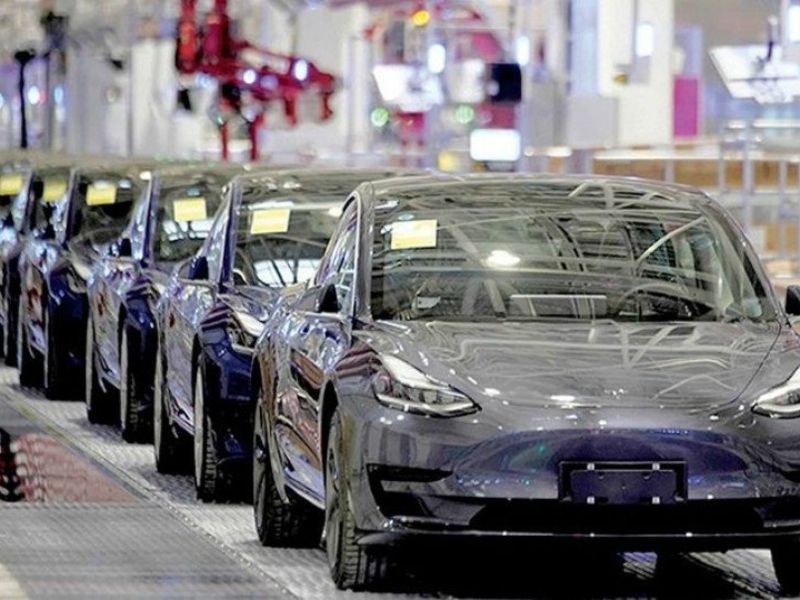
SHANGHAI — A slew of foreign automakers downsized their China operations in recent years.
More of them plan to do so: Mazda Motor Corp. will merge its two joint ventures into one while Stellantis has decided to close one of the two local plants for the Jeep brand.
And next year, international players will be allowed to operate wholly owned subsidiaries in China’s auto industry.
But let’s be clear: This does not mean the Chinese auto industry is on the verge of an imminent shakeup – even as the government this week began to signal interest in seeing consolidation, particularly in the electric vehicle market.
The primary factor that has pushed several global automakers to pare local production is competition.
The world’s largest auto market is also the world’s most crowded market, where many foreign and domestic Chinese brands have long been competing neck-and-neck for market share.
Unable to fend off the competition, several global players have found themselves operating well under production capacity in China since the mid-2010s.
In the past few years, Hyundai Motor Group has closed two of its seven plants in China, while PSA Peugeot Citroen, now part of Stellantis, has wound up its JV with Changan Automobile Co. and slashed production at its partnership with Dongfeng Motor Group.
Last year, Renault SA also closed its gasoline car JV with Dongfeng.
But one thing worth noting is that except for Suzuki Motor Corp., which closed its only JV in 2018, none of the other international auto manufacturers plan to exit the Chinese market despite the troubles they face.
These companies are striving to turn around their China businesses. Stellantis said it has made some progress on that front: in the first half of this year, its JV with Dongfeng generated a positive cash flow.
EV impact
While curtailing production of traditional vehicles, they are also seeking to boost local output of EVs.
Hyundai is now upgrading its commercial vehicle plant, in Ziyang of southwest China’s Sichuan province, to enable it to churn out hybrid, full electric and fuel cell trucks.
While operating a light commercial vehicle JV with Brilliance China, Renault has established EV partnerships with Dongfeng and Jiangxi Jiangling Group Electric Vehicle in the past few years.
In August, the French automaker signed a framework agreement with Geely Holding Group on building and selling hybrid vehicles in China.
Future partnerships
In 2018, Beijing announced that it would permit foreign automakers to run wholly owned subsidiaries in China starting 2022.
One might think the move would prompt global players to ditch their local partners. But it appears to be having the opposite effect.
BMW Group, while producing BMW-badged vehicles with Brilliance China, struck a deal with Great Wall Motor Co. in 2018 to build EVs for the Mini marque in China. This move came a year after Volkswagen Group signed up its third joint venture partner — Jianghuai Automobile Co.
Moreover, while assembling Mercedes-Benz vehicles with BAIC Motor Co., Daimler last year inked an agreement with Geely to produce EVs for Smart brand, which will be sold in and outside China.
With vehicle electrification forging ahead, EVs and plug-in hybrids accounted for nearly 11 percent of new-vehicle sales in China for the first eight months of 2021, up from 5.4 percent in 2020.
But with few players willing to depart, it’s a safe bet to conclude the fast-changing market will remain as fragmented as ever for the foreseeable future.

